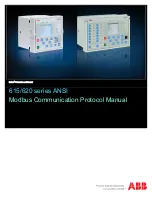
1TfQ^SUTC_VdgQbU6UQdebUc
=UTGU\T# %?`UbQd_bµc7eYTUD)## "
%'
= #" "%1`bY\" "
'\QDPLF6TXHH]H)HDWXUHV
The MedWeld 3005 provides a test fire function. Use it to
determine the initial secondary resistance of a test fire, and
whether the electrode tips were touching, (based on current
draw).
The data generated by the test fire can be used by the control in
several ways.
6SHFLI\LQJWKH7HVW
)LUH&XUUHQW
First, use the setup parameter Tips Down Test Fire %I to tell the
processor the amount of heat to use in the welding schedule
when the control executes Function #80 (VERIFY TIPS DOWN
EVERY nn CYC. nn TIMES) or Function #81 (SLOW CYLINDER
TEST EVERY nn CYC. nn TIMES).
Set this parameter value to be low enough to reduce the open
secondary voltage, but high enough so that the current detected
when tips are down exceeds the Tips Down Verified Current
setup parameter.
>?D5C*
DO NOT confuse the Tips Down Test Fire %I setup parameter with
Function #39 (TEST FIRE nn%). This setup parameter is used ONLY
by the VERIFY TIPS DOWN and SLOW CYLINDER TEST
functions.
Function #39 performs a 1-cycle test fire at the percent heat programmed.
The test functions (described on page 5-7) use the results of this test fire
to check conditions such as initial power factor and the amount of current
provided by the weld.
'HILQLQJWKH&XUUHQW
7KUHVKROG
You must also define the setup parameter Tips Down Verified
Current to define the current threshold to use when executing the
dynamic squeeze functions: Function #80 (VERIFY TIPS DOWN
nn CY. nn TIMES) or Function #81 (SLOW CYLINDER TEST
EVERY nn CYC. nn TIMES).
The best way to determine this value is by experimenting to
distinguish open and closed secondary currents for various heat
settings.
Summary of Contents for MedWeld 3005
Page 2: ...YY UTGU T UbQd_bµc 7eYTU V_b D 1 bY ...
Page 84: ...3_ e YSQdY_ c Q T 9 UTGU T UbQd_bµc 7eYTU D 1 bY ...
Page 110: ...GU T CSXUTe Uc UTGU T UbQd_bµc 7eYTU D 1 bY ...
Page 126: ...1TfQ SUT C_VdgQbU 6UQdebUc UTGU T UbQd_bµc 7eYTU D 1 bY ...
Page 144: ...CUde QbQ UdUbc UTGU T UbQd_bµc 7eYTU D 1 bY ...
















































